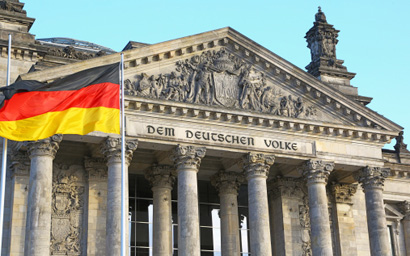There appears to be an asset-management consensus that Germany’s election result will not derail the European economic recovery.
Fund managers this morning advised investors to stand firm in European equities and to not fear a widening in bond spreads.
Here is a selection of comments from asset management commentators.
Andrew Bosomworth, head of portfolio management in Germany, Pimco
“We view [populist] AfD’s success as a protest vote against the outgoing grand coalition, particularly concerning how [German chancellor Angela] Merkel dealt with the refugee crisis. Beyond immigration, however, AfD is deeply divided.
“Although directly elected to the Bundestag, AfD co-chair Frauke Petry split from her party Monday morning in reaction to fundamental opposition against its right-wing tendencies. Some AfD followers may yearn for the Deutschmark, but the vast majority of Germans see their country’s future in the euro.”
Bosomworth added: “Modern Germany is not the Weimar Republic. Should periphery spreads widen in the weeks ahead owing to concerns about Germany’s commitment to the European project, we would view that as noise and an opportunity to fade.”
Nick Peters, multi asset portfolio manager, Fidelity International
“The political implications of the elections remain relatively mute, as the eurozone continues to enjoy a strong and synchronised recovery.
“I remain positive on European equities, which should benefit from the strong fundamental picture. Europe’s equity market has lagged other developed markets (excluding the impact of currency) and so offers some potential for catch up, particularly given valuations do not look stretched relative to recent history and with earnings per share growth the fastest among developed markets.”
Peters also said: “Merkel’s governments have promoted German growth mainly through external competitiveness and, although there is a need to re-balance the economy somewhat, it is unlikely the new government will significantly change tact with Markel still Chancellor.
“This should be positive for export orientated sectors, such as industrials and healthcare, though the auto sector faces some stronger specific challenges that will be important for relative performance.”
David Zahn, head of European fixed income, Franklin Templeton Fixed Income Group
“As we’ve noted before, populism tends to recede when the economy is doing better, but it can quickly re-emerge when discontent sets in. Therefore, we expect the economy to be a major focus of political attention.
“People don’t tend to take to the streets when they have food on the table.
“But, Merkel may also want to think about her approach to the greater integration of the European Union (EU).
“In the past, Merkel seemed cautiously supportive of closer political and fiscal union across the EU. She may now have to think more carefully about how those developments would play with her domestic audience.
“On the other hand, given the pro-European credentials of France’s new president, Emmanuel Macron, Merkel is unlikely to do anything that could jeopardise her perceived role as de facto leader of Europe.”
Markus Schomer, chief Economist, PineBridge Investments
“Wow. Stunning result in the German elections.”
He went on to say: “However, this is probably the best environment for populists right now (immigration crisis, lingering anti-euro sentiment). Yet, in Germany they can’t even get 15%? I would say populism will shape policy on the margin, but it’s not much of a threat to Germany’s position in Europe.
“Bottom Line: The results of today’s German elections are stunning and represent an earth-quake for the country’s political establishment. But once the dust settles, only one coalition seems viable, which should force the three parties involved to succeed even if it takes three or four months.
“Angela Merkel is looking to move the EU forward and a more unified fiscal policy is the logical next step. Replacing ‘Mr. Austerity’ Wolfgang Schäuble with a more pro-tax cut FDP minister should boost growth in Germany and accelerate the economic rebound in Europe.”
©2017 funds europe





